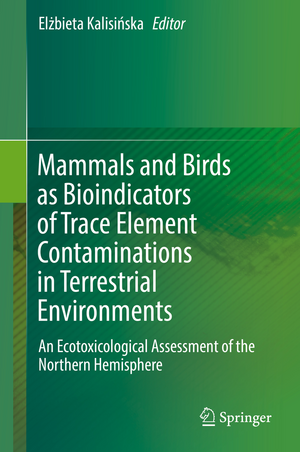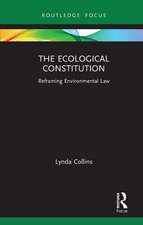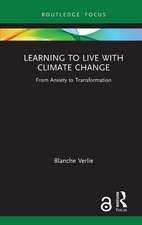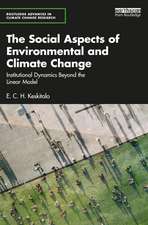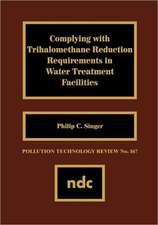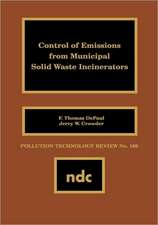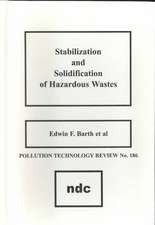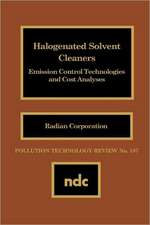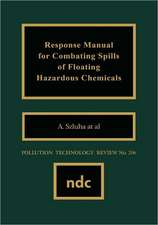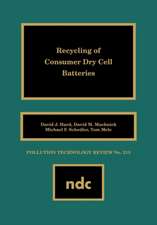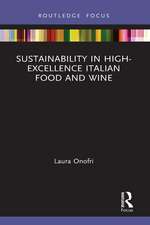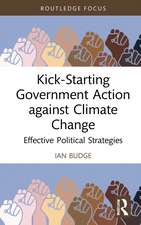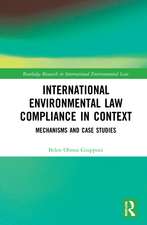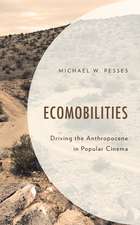Mammals and Birds as Bioindicators of Trace Element Contaminations in Terrestrial Environments: An Ecotoxicological Assessment of the Northern Hemisphere
Editat de Elżbieta Kalisińskaen Limba Engleză Hardback – 13 mar 2019
Preț: 1243.29 lei
Preț vechi: 1516.21 lei
-18% Nou
Puncte Express: 1865
Preț estimativ în valută:
237.90€ • 249.06$ • 196.85£
237.90€ • 249.06$ • 196.85£
Carte tipărită la comandă
Livrare economică 07-21 aprilie
Preluare comenzi: 021 569.72.76
Specificații
ISBN-13: 9783030001193
ISBN-10: 3030001199
Pagini: 760
Ilustrații: XII, 708 p. 45 illus.
Dimensiuni: 155 x 235 mm
Greutate: 1.18 kg
Ediția:1st ed. 2019
Editura: Springer International Publishing
Colecția Springer
Locul publicării:Cham, Switzerland
ISBN-10: 3030001199
Pagini: 760
Ilustrații: XII, 708 p. 45 illus.
Dimensiuni: 155 x 235 mm
Greutate: 1.18 kg
Ediția:1st ed. 2019
Editura: Springer International Publishing
Colecția Springer
Locul publicării:Cham, Switzerland
Cuprins
Part I Introduction.- Human Population Increase and Changes in Production and Usage of Trace Elements in the Twentieth Century and First Decades of the Twenty-First Century. - Endothermic Animals as Biomonitors of Terrestrial Environments. - Part II Selected Trace Elements. - Chromium, Cr. - Copper, Cu. - Iodine, I. - Iron, Fe. - Manganese, Mn. - Molybdenum, Mo. - Nickel, Ni. - Selenium, Se. - Zinc, Zn. - Aluminum, Al. - Arsenic, As. - Cadmium, Cd. - Fluorine, F. - Lead, Pb. - Mercury, Hg. - Silver, Ag. - Tin, Sn.
Notă biografică
Elżbieta Kalisińska is Head of the Department of Biology and Medical Parasitology at the Pomeranian Medical University in Szczecin, following her tenure as Head of the Department of Zoology at the Agricultural University in Szczecin. She received her Master’s degree in Environmental Biology from Adam Mickiewicz University in Poznan in 1978, after which she pursued and completed PhDs in both Animal Biology and Zoology. Her main areas of interest include zoology (allometry, animal ecology), environmental protection, parasitology, and especially ecotoxicology. For years she has collaborated with Polish and international researchers in these areas, and has spearheaded several major ecotoxicological projects.
Textul de pe ultima copertă
The population explosion that began in the 1960s has been accompanied by a decrease in the quality of the natural environment, e.g. pollution of the air, water and soil with essential and toxic trace elements. Numerous poisonings of people and animals with highly toxic anthropogenic Hg and Cd in the 20th century prompted the creation of the abiotic environment, mainly in developed countries. However, the system is insufficient for long-term exposure to low concentrations of various substances that are mainly ingested through food and water. This problem could be addressed by the monitoring of sentinels – organisms that accumulate trace elements and as such reflect the rate and degree of environmental pollution. Usually these are long-lived vertebrates – herbivorous, omnivorous and carnivorous birds and mammals, especially game species. This book describes the responses of the sentinels most commonly used in ecotoxicological studies to 17 trace elements.
Caracteristici
Contains a comprehensive study on the possible use of mammals and birds in the bioindication in terrestrial environments Provides essential reading for anyone interested in ecotoxicological assessment and in the potential use of bioindicator organisms as monitors Describes the responses of bioindicator organisms most commonly used in ecotoxicological studies to 17 trace elements?
